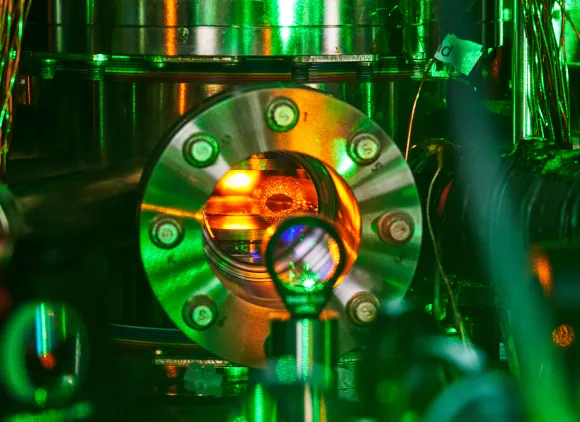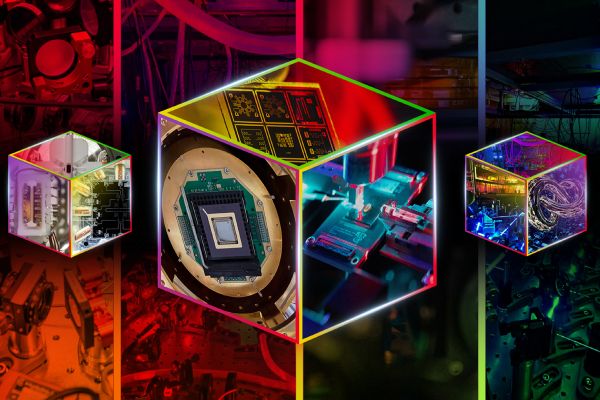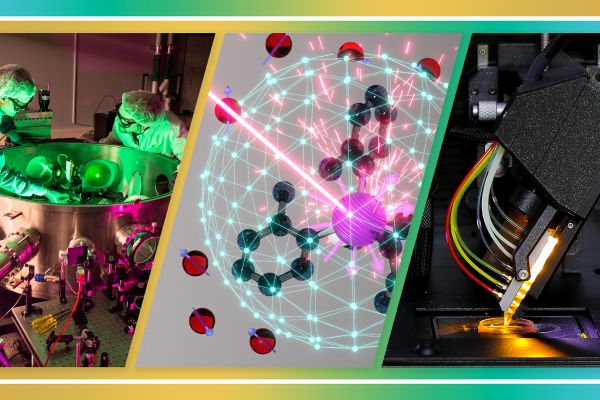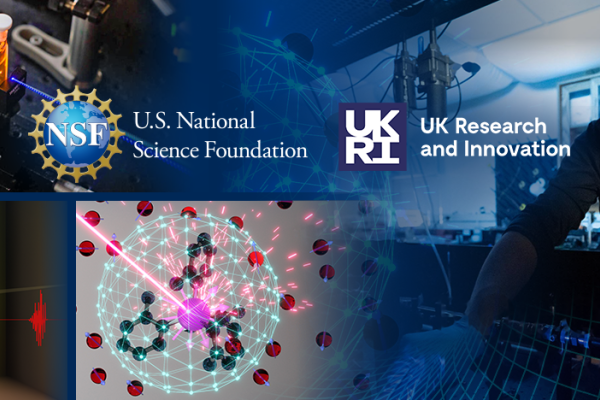For decades, the U.S. National Science Foundation has invested in the foundational research and development driving the quantum revolution.
Whether it's GPS systems, MRI technology or the lasers that enable today's internet, technologies that leverage quantum effects have their roots in NSF investments.
The future of quantum information science and engineering promises to be even more impactful — like computers with unprecedented power, inherently secure communications, new industrial materials, and sophisticated sensors and imaging tools.
 On this page
On this page
What is quantum information science?
In the quantum world, at the scales of molecules, atoms and electrons, the laws of physics become peculiar. Researchers are exploring how to control the behavior of these quantum systems to create next-generation technologies for imaging, sensing, computing, modeling and communication.
Quantum information science touches nearly all areas of science and engineering, relying on advances in the physical sciences, materials science, computer science, mathematics and engineering.
Brought to you by NSF
NSF's decades of sustained investments have ensured the continual advancement of quantum research. Pioneering work supported by NSF includes:
Quantum sensors
NSF funding is fueling research and development of new sensor technologies that can control quantum phenomena to precisely measure the previously unmeasurable. One day quantum sensors could allow doctors to pinpoint infections inside individual cells, or geologists to find subterranean mineral deposits without lifting a shovel.
Quantum computing
NSF is investing in research and development to enable functional quantum computers that can help create the most energy-efficient materials, understand how proteins fold, and tackle other complex problems that are beyond the capabilities of even the most powerful supercomputers of today.
Quantum communications
Quantum phenomena such as entanglement can be used to protect important digital data in new ways. NSF funding is behind many research teams working to develop quantum-based networks and data protection methods that can secure information from eavesdroppers now and in the future.
What we support
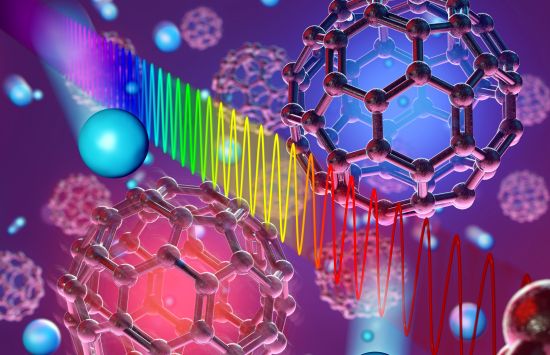
Fundamental quantum research
We support fundamental investigations into quantum phenomena and systems.
Translating knowledge to practice
We support the translation of quantum knowledge into technological applications, including proof-of-concept devices, tools and systems.
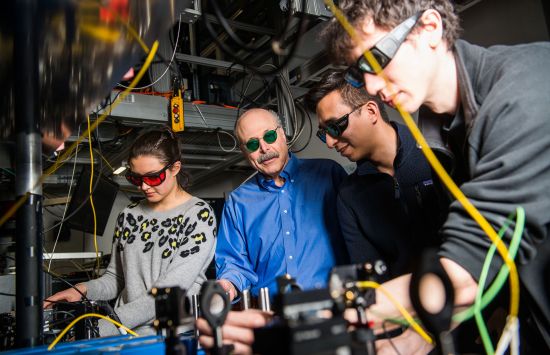
Education and workforce development
We support the creation of a diverse workforce across the U.S. that is ready to develop and operate the quantum technologies of the future.
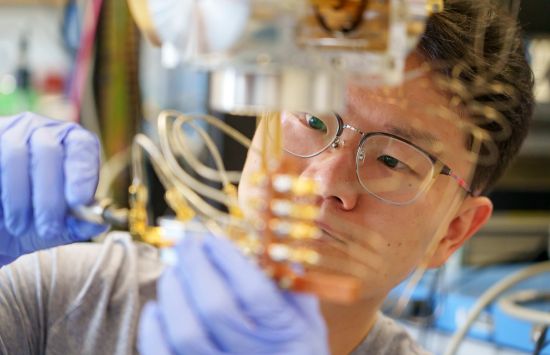
Foundries for quantum materials and devices
We support quantum foundries, in close cooperation with industry partners, for the rapid prototyping and development of quantum materials and devices.

Partnerships to accelerate progress
We partner with other federal agencies, industry and nonprofits to share data, tools, expertise and other resources; strengthen workforce development; and translate research into products and services that benefit society.
NSF Quantum Leap Challenge Institutes
The NSF Quantum Leap Challenge Institutes are advancing fundamental discoveries in quantum science and developing the future scientists, engineers and startups that will contribute to the quantum revolution.
- Hybrid Quantum Architectures and Networks (HQAN): Focuses on developing robust, interconnected networks of quantum processors.
- Quantum Systems through Entangled Science and Engineering (Q-SEnSE): Focuses on developing quantum sensors, a technology with the potential to measure everything from radiation levels to the effects of gravity with better sensitivity and accuracy than classical sensors.
- Challenge Institute for Quantum Computation (CIQC): Focuses on designing advanced, large-scale quantum computers that will outperform classical computers.
- Institute for Robust Quantum Simulation (RQS): Focuses on developing the methods and tools for large-scale quantum simulators that will allow for quantum computation.
- Quantum Sensing for Biophysics and Bioengineering (QuBBE): Focuses on identifying novel biological quantum sensing systems and developing next-generation tools for observation and discovery.
NSF National Quantum Virtual Laboratory

The NSF National Quantum Virtual Laboratory is a first-of-its-kind national resource to enable faster discovery and development of use-inspired quantum technologies.
Now in the design stage, the lab will broaden access to specialized research infrastructure by functioning as a geographically distributed national resource that any qualified researcher or student can participate in.
Featured funding
America's Seed Fund (SBIR/STTR)
Supports startups and small businesses to translate research into products and services — including quantum information technologies — for the public good.
Computer Systems Research
Supports research to support the development of next generation computing systems, including classical, quantum and embedded systems.
Connections in Quantum Information Science
Supports research that harnesses fundamental quantum properties to explore new scientific frontiers and develop new technologies at the interface of traditional scientific disciplines.
Foundations of Emerging Technologies
Supports unconventional, potentially paradigm-shifting research at the intersection of novel and foundational computing research, including quantum information, nanoscale science and engineering and biological systems.
NSF National Quantum Virtual Laboratory - Quantum Testbeds
Supports the design and implementation of Quantum Science and Technology Demonstration projects as part of the National Quantum Virtual Laboratory program.
Quantum Information Science
Supports theoretical and experimental research to advance foundational understanding and enable quantum technologies through multidisciplinary collaboration between physicists, mathematicians and computer scientists.


